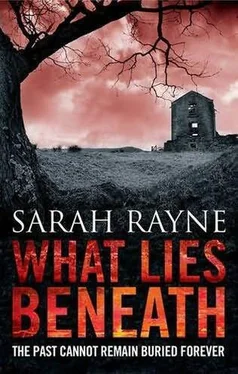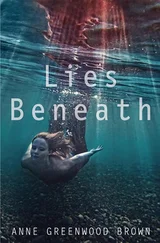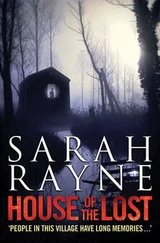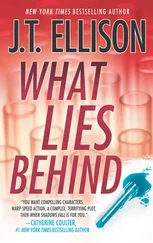Jamie Cadence’s Journal
I started to explore Edirne soon after our arrival – when I had got over being sick from that vile railway journey, that is, and after we had settled into our quarters in the fort. I’ll admit Crispian did well in arranging that.
It took a great deal of courage to go outside the fort on my own. I don’t think many people would venture into a maze of narrow streets in a strange land, knowing nothing of the language, and with the country on the brink of war with half a dozen of its neighbours. But I did. Neither Crispian nor Gil thought it very unusual: they both considered me something of a loner.
As I walked through the streets, I drew myself little maps so as not to get lost, and quite soon I sought out the Jewish community, using their music as the basis for approaching them. No, that’s not an accurate statement. I didn’t ‘use’ the music; I was genuinely interested. They have a wonderful legacy of music in that city. A choral society of Maftirim was founded there in the seventh century and a great many gifted cantors have come from the area.
Jewish people have endured much abuse and ill treatment over the centuries, but I’ve always liked them. They’re courteous and warm and interesting. And among that particular Jewish community were a number of very scholarly men – elders – who could understand and speak English. That was what I wanted. I was accepted by them quite early on – the eccentric Englishman from the famous banking house, caught in the country through the fortunes of war.
From there it was easy to identify others who were not so scholarly or courteous. Extremists, they were called, those fiery-eyed, dark-visaged men and youths, and the few women who were with them. I never sorted out their nationalities, but I think they were mostly Turks and a few Greeks. They were all working in their own ways to defeat the Bulgarians and the Montenegrins, and all the other people who wanted to take over Edirne and everything that had once been part of the ancient Ottoman Empire.
The remarkable thing is that they trusted me. They were pleased – perhaps also flattered – that this Englishman who had so much money (ha!) sought them out and wanted to understand about their war and their plans. Ah, the English understood about empires and the losing of them, they said. I spent long afternoons with them, seated in their small, hot houses. Usually one of the English-speaking Jews would be there, but not always, and one or two of the younger men had a phrase or two of English. I was able to listen with apparent absorption to everything. Even with the language barrier, it was plain that these were people who would fight with every means at their disposal, and who would ignore the ordinary rules of warfare. Do ordinary rules operate in warfare, though? I wouldn’t know. I’ve never fought a war, except my own private wars with the darknesses, which I usually lost anyway.
Sometimes I went to their houses at night as well, avoiding the evening meal in the fortress with Crispian and Gil and the others, pleading a headache from the heat of the day. It was easy to say I was retiring to my room and then to slip out of the fort – I knew all the ways in and out by that time – and skulk through the dark streets. On several of those nights my own darkness walked with me. Once, it was so strong I believed I saw its shadow, loping alongside me on the ancient stones. Henry Jekyll seizing the hapless Hyde’s mind yet again, twisting and deforming and dredging up the shameful bloodlust, or Thomas Hardy’s figure and visage of Madness seeking a home.
I killed again that night. I don’t suppose anyone who’s read this far will be surprised. It wasn’t a particularly imaginative killing. I simply stood in the shadows of a tall building, waiting for a likely victim, and in the end a young boy came along. I usually prefer a woman when I’m killing but there was little chance of a lone female in that part of the world. The boy put up quite a fight, but I overcame him, of course. What did Raif and that drunken sot on the ship, Dr Brank, say? That genuinely mad people have the strength of three men? They were talking about Julius but they might as well have been talking about me. I certainly had the strength of three men, that night. And, as in Messina, the fight and the eventual killing were deeply arousing. I pondered that afterwards, because although killing a woman always brought me to helpless arousal, I hadn’t expected it to be the same with a man. But since I’m shortly to die (sixty hours left now), I may as well admit I was aroused by the boy’s struggles.
It was as I returned to the fort, the hunger slaked, the darkness dissolving, I suddenly saw the perfect way to get rid of Crispian. Tonight, if I had left something of Crispian’s on the boy’s body, he could have been traced and charged with the murder. It wouldn’t have mattered if anyone had seen me either, because Crispian and I are superficially alike. And it would have been easy to have stolen something from his room – a cufflink, perhaps. He was always vain as a cat about the way he looked and dressed. Even in the fortress with the Bulgarian armies bombing the town and people starting to worry about food supplies, he donned a dinner jacket each night, with studs in the cuffs. People make jokes about the British dressing for dinner in the jungle to preserve standards, but it’s exactly what Crispian did in Edirne. Gil Martlet did too, but that was because he wanted to go to bed with Crispian. Each to his own brand of gratification. As for Crispian’s feelings about Gil, I never had a clue, because he gave nothing away. Personally, I always thought him a cold fish when it came to emotions.
The idea of committing a crime in Crispian’s name – of arranging for him to be charged with some serious transgression – took firm root in my mind. So, when I got to know the Jewish musicians and the Turkish extremists, I didn’t tell them my real name. I said I was Crispian Cadence. And from there, I took pains to let it be known that I and my companions desperately wanted to get out of Edirne, that we would do practically anything to return to England. We would pay handsomely, I said hopefully. When that brought no response, I amended it to say we would do anything at all that would lead to our freedom. Living in the fort, alongside the soldiers and the Pasha’s aides, was very tedious; there was no privacy to speak of. Everyone knew everyone else’s business.
At first I thought there were no Bulgarian spies inside Edirne or, if there were, they had not been told what I said or were not prepared to take any risks with an unknown Englishman. There was also the chance that the real meaning of what I had said had been lost in translation.
But shortly after the Bulgar armies surrounded Edirne, one of the extremists I had met approached me with a proposition. He was quite a young man, formerly a student, I believe, although I have no idea what his nationality was. Speaking in fragmented English he managed to explain he had friends outside Edirne who would pay very well indeed for information about the workings of the fortress and the movements of the Pasha’s men. It might not be payment in actual money, I was to understand, but in the creating of a safe passage out of the town and onto a cargo ship for myself and the other Englishmen. That was what I wanted, yes?
‘Yes,’ I said very emphatically.
For the next ten days, working with infinite care and patience, I began to feed this man details of life inside the fort. The times of guard duty on the main entrance, the hours when there were only a couple of men guarding and when the guard changed over. He said something about those being vulnerable times. Later I managed to get into the Pasha’s room when no one was around, and stole a file of letters, which I passed on. I have no idea what the letters said – they might simply have been lists of provisions or dull records – but the very fact that I was prepared to court such danger added to my credibility as a spy.
Читать дальше












